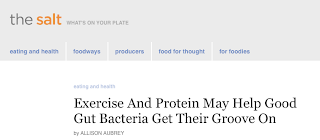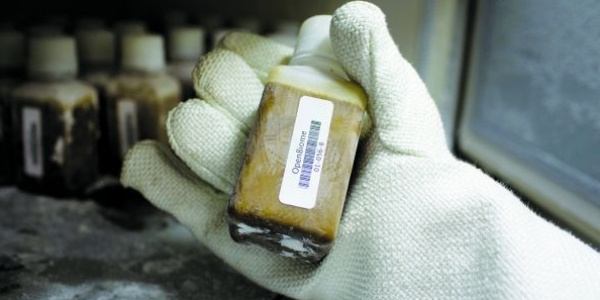Uhh? http://t.co/psM91dMi50 pic.twitter.com/JBvXvhq66T
— Nick Loman (@pathogenomenick) March 25, 2015There are no "ancient bacteria". when we actually see the paper i'm sure it will be a doozy. http://t.co/qewzlRHcLX
— Pat Schloss (@PatSchloss) March 25, 2015These refer to a sadly inappropriate headline in Science

What is wrong with this? Well, there are no "ancient" bacteria around today. They are all modern. I am not even sure what they were trying to say. Just a really bad evolution argument I guess. I pondered giving Science a Twisted Tree of Life Award which I give out for exactly this kind of thing - but decided first to dig into the science here and gloss over the bad evolution headline.
And it turns out - what the news story is about is in fact interesting - a new paper out in Nature Communications: Subsistence strategies in traditional societies distinguish gut microbiomes.
The paper is freely available and has some really interesting material in it. They key to me - at least related to this "ancient" bacteria claim is the following part of their abstract:
As observed in previous studies, we find that Treponema are characteristic of traditional gut microbiomes. Moreover, through genome reconstruction (2.2–2.5 MB, coverage depth × 26–513) and functional potential characterization, we discover these Treponema are diverse, fall outside of pathogenic clades and are similar to Treponema succinifaciens, a known carbohydrate metabolizer in swine. Gut Treponema are found in non-human primates and all traditional peoples studied to date, suggesting they are symbionts lost in urban-industrialized societies.And then some further detail in the paper:
Although Spirochaetes have been previously reported from the gut microbiome of non-human primates and ancient human populations, they have only been observed in high abundance among extant human populations with non-Western lifestyles, such as a traditional community in Burkina Faso and a hunter-gatherer community in Tanzania. As such, they may represent a part of the human ancestral gut microbiome that has been lost through the adoption of industrial agriculture and/or other lifestyle changes.So they don't go into the full detail here but what I think they are saying is that they infer that human ancestors had Spirochaetes (based on the finding of it in non human primates and some human populations). And thus they further infer that human populations (e.g., the people they studied in Oklahoma) that do not have these Spirochaetes have "lost" them.
I note - I think this terminology of "loss" they are using is not quite right here in a way. Saying that these Spirochaetes have been lost implies to me that they are heritable. But they do not in fact show that. It could be that these are related to diet or environment in some way - something shared by some human populations and non human primates, for example. And thus the absence from some "Westernized" populations could be more of an environmental thing than a "loss" in the past.
In a similar way, we could say that Westernized humans have "lost" the ability to be skinny (since obesity is high in many such populations). Non human primates have such abilities and so do some non Westernized populations. But "losing skinnyness" does not seem quite right since we do not know exactly why obesity is higher in Westernized populations. I think it would be better in such cases to say something like "do not show an ancestral trait" (the ancestral trait here being skinnyness) and to not use "lost" until we know more about what is going on. Similarly, I think saying some human populations have "lost" these Spirochaetes is not quite right.
Nevertheless, the absence (or at least, low levels) of these Spirochaetes from some human populations is certainly interesting. And given that the presence of such Spirochaetes does appear to be an ancestral trait, the absence is even more interesting. And thus this paper here, which details some of the genomic features of these "missing" Spirochaetes is definitely worth paying attention to.
In addition, I note - the findings in this paper serve as an additional justification for projects to generate genomic data from across the phylogenetic diversity of microbes. Consider for example their Figure 6 and 7 which show that the most closely related Treponema species and the ones with the most similar genomes to these human Spirochaetes are those from Treponema succinifaciens and Treponema brennabornese.
Both of those genomes were generated by the Genomic Encyclopedia of Bacteria and Archaea project which I coordinated with the DOE-JGI and DSMZ. See the paper on one of them: Complete genome sequence of Treponema succinifaciens type strain (6091T) and the posted data on the other.
We argued that we needed to sequence reference genomes from across the tree of life because this would help inform studies of uncultured microbes from diverse ecosystems. Little did I know that one of the key ecosystems we would help inform would be the human gut.
Certainly more needs to be done in regard to these Spirochaetes. Why are they at low levels or missing from some Westernized populations? What do they do in other populations? Would they be helpful if they were reintroduced to populations that do not have them? So many questions actually. But despite the misleading news article headline, this paper seems to me on first glace at least to in fact be quite interesting.
I made a Sorify of some comments












